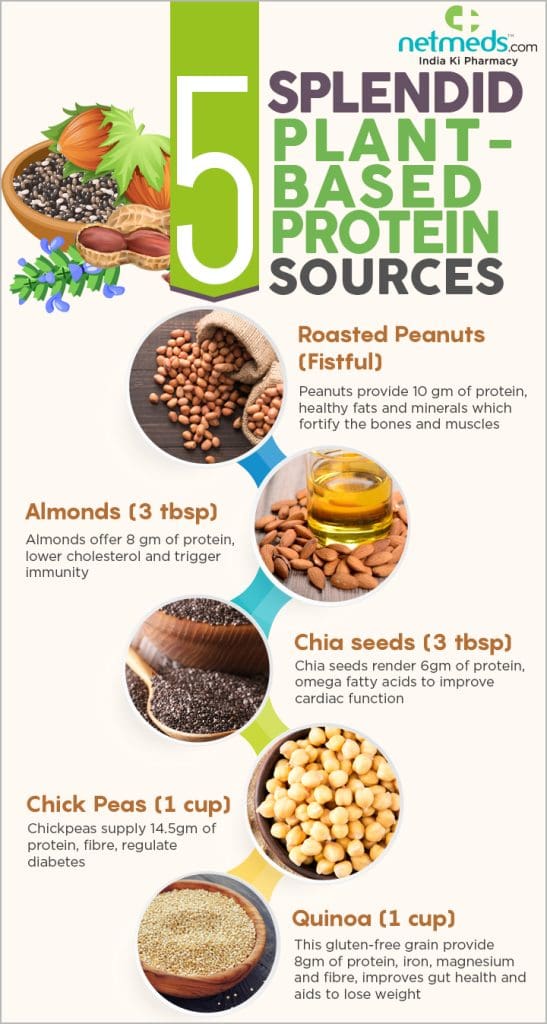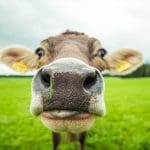As veganism continues to rise in popularity for ethical, health, and environmental reasons, misconceptions about plant-based nutrition remain widespread. From concerns over protein and iron intake to doubts about calcium or vitamin B12 sources, these myths often deter individuals from embracing a vegan lifestyle. However, the truth is that a well-planned vegan diet can provide all essential nutrients while offering numerous health benefits. In this article, we’ll debunk common myths surrounding vegan nutrition with evidence-based insights and practical tips on how to meet your dietary needs through plant-based foods like legumes, leafy greens, fortified products, nuts, seeds, and more. Whether you’re exploring veganism or looking to optimize your current diet, discover how thriving on plants is not only possible but empowering!
Veganism has been gaining popularity in recent years, with more and more people choosing to follow a plant-based diet for ethical, health, and environmental reasons. However, there are still many misconceptions surrounding vegan nutrition, particularly when it comes to key nutrients like protein and iron. These myths often discourage individuals from adopting a vegan lifestyle, or cause concern for those already following it. In this article, we will delve into the world of vegan nutrition and debunk some of the most common myths surrounding it. We will address the questions and concerns surrounding protein and iron intake on a vegan diet, as well as explore other important nutrients that are often overlooked. With evidence-based research and expert insights, we aim to shed light on the truth behind vegan nutrition and provide a better understanding of how a well-planned plant-based diet can meet all of our nutritional needs. Whether you are a long-time vegan or just curious about the diet, join us as we bust these myths and uncover the facts about vegan nutrition.
Vegan diets offer ample protein
Dispelling common myths about vegan nutrition by providing evidence-based information on how to obtain essential nutrients from plant sources, it is important to address the misconception that vegan diets lack sufficient protein. Contrary to popular belief, vegan diets can provide ample protein to support optimal health and meet the recommended daily intake. Plant-based foods such as legumes, tofu, tempeh, seitan, and quinoa are excellent sources of protein, offering complete amino acid profiles. Additionally, incorporating a variety of nuts, seeds, and whole grains into a vegan diet can further contribute to meeting protein needs. By combining different plant-based protein sources throughout the day, individuals following a vegan lifestyle can easily obtain the necessary protein for their bodies’ nourishment and overall well-being.

Plant-based iron sources are plentiful
Plant-based iron sources are plentiful, debunking another common myth about vegan nutrition. Contrary to the belief that iron deficiencies are inevitable on a vegan diet, there are numerous plant-based options that provide this essential nutrient. Leafy greens such as spinach, kale, and Swiss chard are rich in iron, as are lentils, chickpeas, and beans. Other iron-rich plant foods include quinoa, fortified cereals, nuts, and seeds. It’s important to note that while plant-based sources of iron may be non-heme iron, which is not as readily absorbed as heme iron from animal products, the absorption can be enhanced by consuming vitamin C-rich foods alongside iron-rich meals. By incorporating a variety of these plant-based iron sources into a balanced vegan diet, individuals can easily meet their iron requirements and maintain optimal health.

Calcium is not just for dairy
Calcium is not just for dairy. Dispelling common myths about vegan nutrition by providing evidence-based information on how to obtain essential nutrients from plant sources. While dairy products are often touted as the go-to source of calcium, it’s important to note that there are plenty of plant-based options that can provide this vital mineral. Dark leafy greens such as broccoli, kale, and bok choy are excellent sources of calcium. Additionally, fortified plant-based milks, tofu made with calcium sulfate, and calcium-fortified orange juice offer alternative ways to meet your calcium needs. It’s worth noting that calcium absorption can be influenced by various factors, such as the presence of oxalates or phytates in certain plant foods. However, by combining calcium-rich plant sources with foods high in vitamin D and reducing the intake of calcium inhibitors, such as excessive caffeine or sodium, individuals can ensure optimal calcium absorption and maintain strong bones and teeth on a vegan diet.

Vegans can easily get B12
Dispelling common myths about vegan nutrition by providing evidence-based information on how to obtain essential nutrients from plant sources. When it comes to vitamin B12, it is often believed that vegans have a hard time meeting their requirements since this vitamin is primarily found in animal-based foods. However, there are actually several plant-based sources and fortified products that can easily provide vegans with an adequate intake of B12. Nutritional yeast, which is commonly used in vegan cooking, is a great source of B12. Additionally, fortified plant-based milks, breakfast cereals, and meat alternatives are readily available and can be included in a vegan diet to ensure sufficient B12 levels. It is important for vegans to be mindful of their B12 intake and consider supplementation if needed, as this vitamin is essential for proper nerve function and red blood cell production. By incorporating these plant-based sources and being aware of the need for B12, vegans can easily meet their nutritional requirements and maintain a balanced diet.

Ditching meat doesn’t mean deficiency
Ditching meat doesn’t mean deficiency. One common misconception about a vegan diet is that it inherently leads to nutrient deficiencies, particularly in protein and iron. However, this couldn’t be further from the truth. Plant-based sources can easily provide all the essential nutrients needed for a healthy vegan lifestyle. Protein, for example, can be obtained from a variety of plant sources such as legumes, tofu, tempeh, and quinoa. These foods not only provide an ample amount of protein but also offer additional health benefits like fiber and antioxidants. Similarly, plant-based iron sources such as spinach, lentils, and pumpkin seeds can meet the body’s iron requirements. By choosing a diverse range of plant-based foods and ensuring adequate intake, it is completely possible to maintain proper nutrition and thrive on a vegan diet.
Nuts and seeds are nutrient-packed
Dispelling common myths about vegan nutrition by providing evidence-based information on how to obtain essential nutrients from plant sources, it is important to highlight the nutritional value of nuts and seeds. These tiny powerhouses are nutrient-packed and offer a wide range of health benefits. Nuts like almonds, walnuts, and cashews are rich in healthy fats, protein, fiber, vitamins, and minerals. They provide a satisfying crunch and can be enjoyed as a snack or added to recipes like salads, smoothies, and stir-fries. Seeds such as chia seeds, flaxseeds, and pumpkin seeds are packed with omega-3 fatty acids, fiber, and minerals like magnesium and zinc. They can be sprinkled on top of oatmeal, yogurt, or incorporated into baked goods for an added nutritional boost. Incorporating a variety of nuts and seeds into a vegan diet not only enhances its nutrient profile but also adds flavor and texture to meals.
Soy is a complete protein
When it comes to plant-based sources of protein, soy stands out as a complete protein option. Soybeans contain all nine essential amino acids that our bodies need but cannot produce on their own. This makes soy an excellent choice for vegans and vegetarians looking to meet their protein requirements. In addition to being a complete protein, soy offers several health benefits. It is low in saturated fat, cholesterol-free, and a good source of fiber. Incorporating soy products like tofu, tempeh, and edamame into meals provides a versatile and nutritious protein source that can support muscle growth and repair. With its unique combination of essential amino acids and additional health benefits, soy is a valuable addition to a balanced vegan diet, helping to dispel common myths about vegan nutrition and showcasing the abundance of plant-based protein options available.
Iron absorption can be enhanced
Iron is an essential mineral that plays a crucial role in our overall health, and it is particularly important for vegans who rely on plant-based sources for their nutritional needs. While it is commonly believed that iron absorption from plant sources is not as efficient as from animal sources, it is important to note that iron absorption can be enhanced through simple dietary strategies. One effective method is to pair iron-rich plant foods with sources of vitamin C, such as citrus fruits, bell peppers, or leafy greens. Vitamin C helps to convert non-heme iron found in plant foods into a more absorbable form, increasing the overall iron uptake. Additionally, soaking, sprouting, or fermenting certain plant foods can also improve iron absorption by reducing the presence of compounds that inhibit iron uptake. By incorporating these evidence-based strategies into a well-planned vegan diet, individuals can ensure they are obtaining sufficient iron from plant sources and dispel common myths about vegan nutrition, showcasing the abundance of nutrient-rich options available.
Vegan athletes thrive on plants
Dispelling common myths about vegan nutrition, it is important to acknowledge that vegan athletes can thrive on a plant-based diet. Contrary to popular belief, plant-based sources can provide all the necessary nutrients for optimal athletic performance. Adequate protein intake, for example, can be achieved through a variety of plant-based sources such as legumes, tofu, tempeh, and quinoa. These foods not only offer a complete amino acid profile but also provide essential vitamins, minerals, and fiber that are beneficial for overall health. Additionally, carbohydrates from whole grains, fruits, and vegetables are vital for sustained energy during workouts. Plant-based sources also offer an abundance of antioxidants and phytochemicals, which can aid in recovery and reduce inflammation. With proper meal planning and attention to nutrient balance, vegan athletes can excel in their chosen sports while reaping the benefits of a plant-powered diet.
Vegans can meet all needs
When it comes to meeting nutritional needs, vegans can rest assured that they can obtain all the essential nutrients from plant sources. A well-planned vegan diet can provide an abundance of protein, iron, and other crucial nutrients necessary for optimal health. Plant-based sources such as beans, lentils, tofu, and leafy greens offer ample protein, while fortified plant-based milks and cereals can help meet iron requirements. Furthermore, plant foods are rich in fiber, vitamins, and minerals that contribute to overall well-being. By incorporating a diverse range of plant-based foods and paying attention to nutrient balance, vegans can confidently meet their dietary needs without compromising their health or athletic performance.
In conclusion, it is important to recognize that a vegan diet can provide all of the necessary nutrients for a healthy and fulfilling lifestyle. Protein, iron, and other essential nutrients can easily be obtained through a variety of plant-based foods. With proper planning and education, vegan nutrition can not only meet the recommended daily intakes, but can also offer a wide range of health benefits. It is time to dispel the myths and embrace the truth about vegan nutrition. Let us continue to educate and inform others about the benefits of a plant-based diet and promote a more sustainable and compassionate way of living.
4.2/5 - (37 votes)



